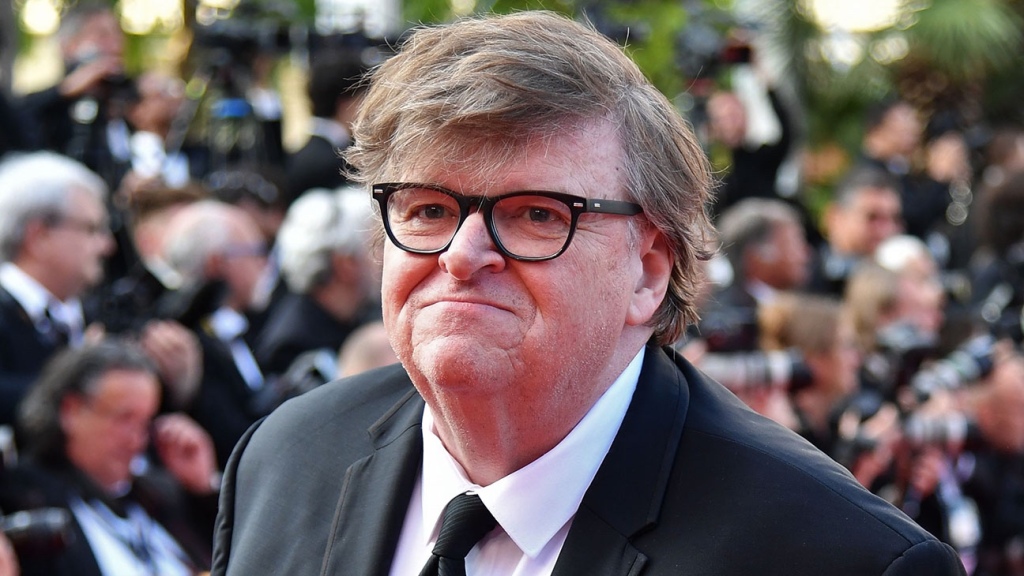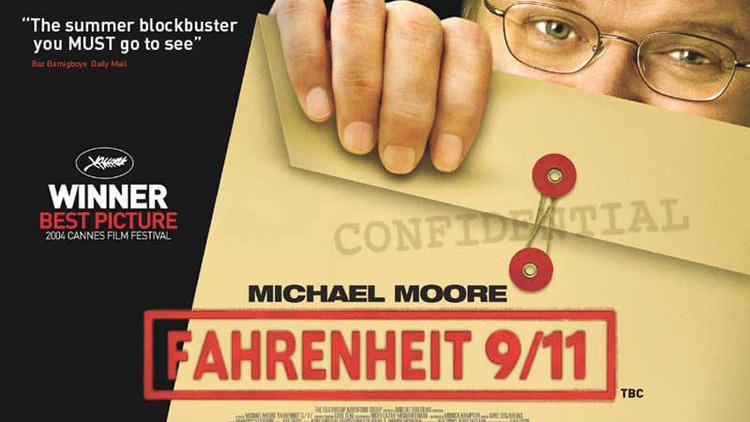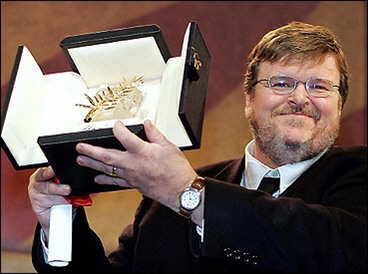Michael Moore is an American documentary filmmaker, author and left-wing activist. Often addressing the topics of globalisation and capitalism, Moore’s documentaries frequently utilise his trademark cynical satire to expose a typically controversial subject matter.
Moore, like Broomfield, is a very visible presence in his documentaries, which can thus be described as participatory and performative. His work is highly committed — overtly polemical in taking up a clear point of view, what might be called agit-prop documentary. He justifies his practice in terms of providing ‘balance’ for mainstream media that, in his view, provides false information. Part of Moore’s approach is to use humour, sometimes to lampoon the subject of his work and sometimes to recognise that documentaries need to entertain and hold an audience.

Moore’s work is typically a combination of his aforementioned cynical narration over a variety of archive footage intertwined with present day interviews with relevant authority figures and other noteworthy members of the public. Through this, Moore creates an engaging and unique experience throughout his filmography – often generating a great deal of controversy.
Moore’s films are extremely personal, tackling topics that hold a great deal of significance to him. Films such as Bowling for Columbine and Fahrenheit 9/11 are now cornerstones of the performative documentary genre. Because of this, it is no surprise that Time magazine named Michael Moore as one of the world’s 100 most influential people.


You must be logged in to post a comment.